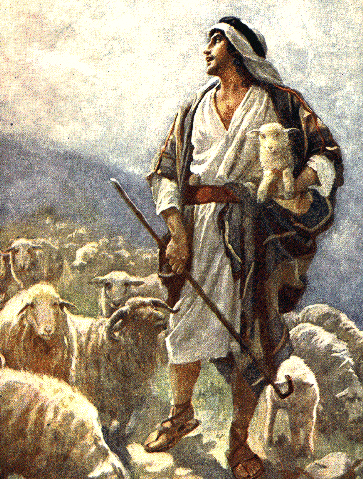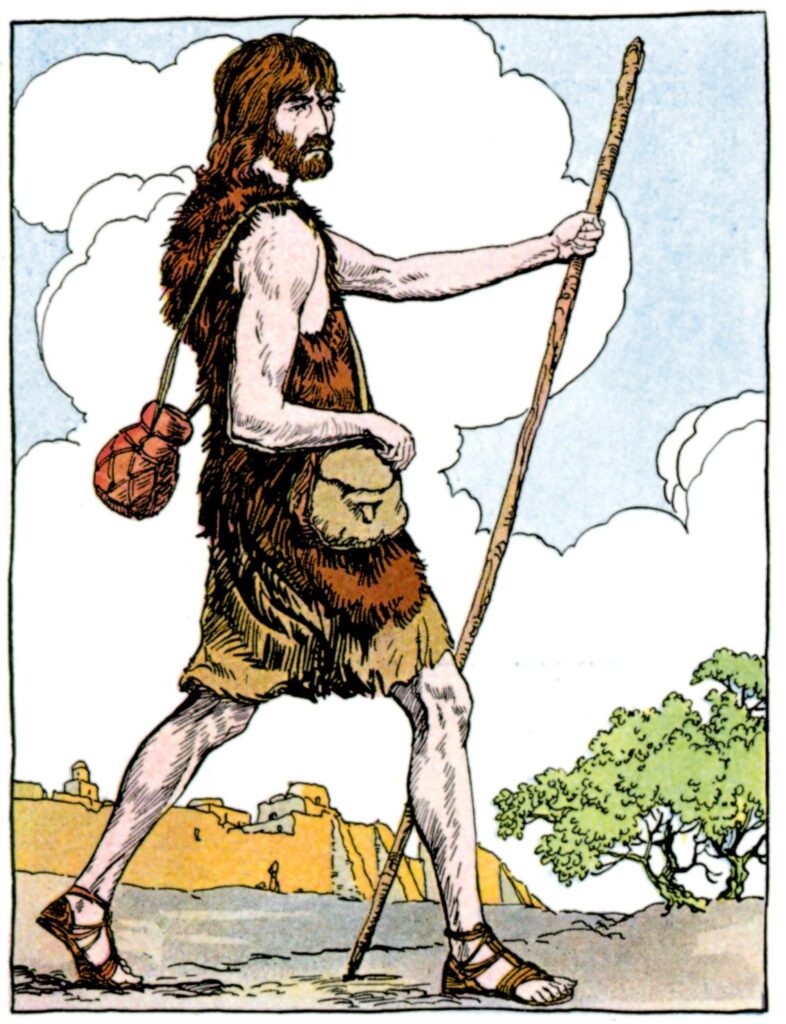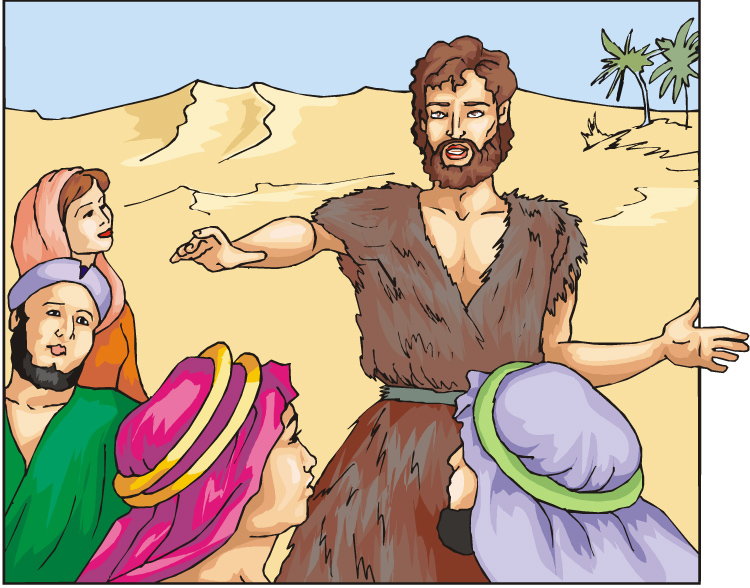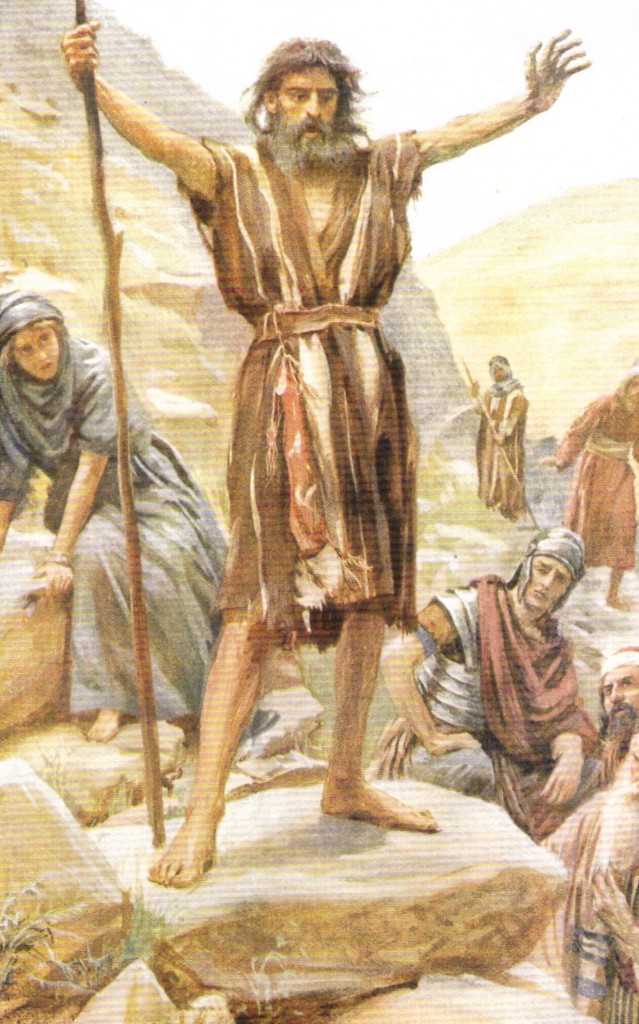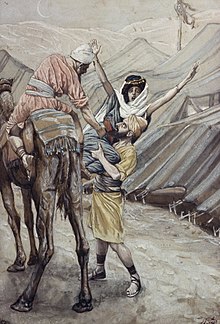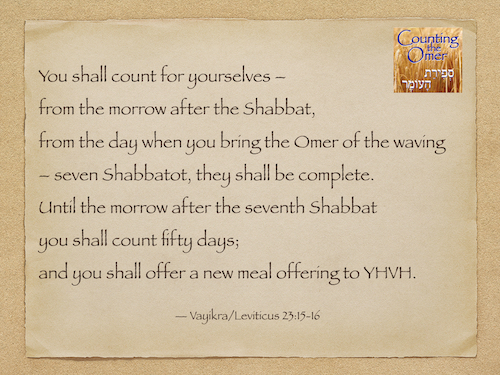
There are 49 days between First Fruits Day, which occurs during the Feast of Unleavened Bread, and the Feast of Weeks (Shavuot or Pentecost). Why does YHVH in the Torah command his pepole to count the seven weeks or 49 days between these two events, with Pentecost occurring on the fiftieth day? The short answer is that Yeshua doesn’t want to marry a spiritual baby. For the long answer, keep reading…
From the Depths of Slavery to a Kingdom of Priests
Every detail in Scripture is for our learning and edification. All the examples of the past are for our learning upon whom the ends of the world are come (1 Cor 10:11; Rom 15:4). Everyday, YHVH is uncovering the prophetic mysteries hidden in the Scriptures that are being revealed to those who diligently seek him by diligently studying to show themselves approved as a workman rightly dividing YHVH’s Word (2 Tim 2:15).
YHVH’s command us to countdown 49 days from First Fruits Day to the Feast of Weeks (Heb. Shavuot; Gr. Pentecoste, Lev 23:15–16) to memorialize the Israelites’ journey from spiritual babyhood to adulthood. During this 49-day count, Israel ascended out of the depths of slavery and suffering in Egypt, was baptized in the Red Sea, and then arrived at Mount Sinai—a place of a spiritual standing before YHVH to become a kingdom of priests (Exod 19:6). It was there that YHVH gave the Israelites his instructions in righteousness—the Torah on Shavuot. This 49-day period represents Israel’s passage from slavery to freedom. They came out of slavery permeated with the leaven, that is, the sins, values, and pagan concepts of Egypt. YHVH instructed them to leave it all behind as symbolized by deleavening their lives during the Feast of Unleavened Bread. After that, YHVH gave Israel 49 days to overcome and to get rid of the impurities of Egypt, and to become the nation of Israel—a holy priesthood and the bride of YHVH. There, at the foot of Mount Sinai, YHVH wanted them to become his ambassadors to this world of the truths of his heavenly kingdom.
The counting of the omer is the story of our lives also. It pictures our going from bondage to the world, the flesh and the devil and coming to a place of spiritual standing before YHVH, so that we can be used of him to advance his kingdom.
It’s a process ordained of YHVH and it’s his pattern that we must follow. There is no escape from this process if we are to be groomed and prepared for use in YHVH’s service.
Why Fifty Days Between the Wave Sheaf Offering and Shavuot?
Fifty is the biblical number signifying complete redemption or liberty. In ancient Israel, all debts were forgiven every seven years. This was called the seven-year cycle. Every seven years, one had to let their land rest; no crops were planted. This was called the land Sabbath. Seven seven-year cycles equaled 49 years. In the Scriptures, we see that seven is the number YHVH uses to signify completion or perfection. Therefore, seven sevens, or 49 years, signified total completion. Seven Sabbaths represents redemption, liberty or rest in its fullest or ultimate sense. The fiftieth year was therefore the year of jubilee when all slaves were set free, all land was returned to its original owners and when all debts were forgiven. If Passover and the Feast of Unleavened Bread signified deliverance from sin (Egypt), then Shavuot, occurring 50 days after the wave sheaf offering during the week of the Feast of Unleavened Bread, symbolizes total redemption, deliverance and victory over sin. How? For us, this occurs through the divine gift and glorious power of the indwelling presence of the Ruach HaKodesh (the Set-Apart Spirit), which Yeshua poured out upon his disciples on the day of Pentecost.
We must recognize this YHVH-ordained process, submit to it and realize what he wants to accomplish in our lives as a result. As we are going through the process, we must keep our eyes on the end goal and keep heading in that direction. Yeshua is that end goal. He is the “end” or “final aim, goal of the Torah” (Rom 10:4). He is “the fulfillment of the law”, that is, he is the full manifestation or fruition of the Torah (Matt 5:17). As such, he is our example to follow. Paul says we are to imitate him—to do what he did (1 Cor 11:1).
The 49 Days Represent a Time of Overcoming and Spiritual Development
When the people of Israel left Egypt, they were immersed or baptized in the Red Sea. This represents the redeemed believer being baptized for the remission of sins at the time of their conversion, and their receiving the Spirit of Elohim. The gift of YHVH’s Spirit is for the purpose of producing within us YHVH’s divine nature. There are seven levels of spiritual growth and development that involve overcoming and equipping, so that we come to a place where YHVH can use us in a special way as his representatives on earth for kingdom outreach.
The seven levels of spiritual development of the divine nature are found in 2 Peter 1:4–8,
Whereby are given unto us exceeding great and precious promises: that by these ye might be partakers of the divine nature, having escaped the corruption that is in the world through lust. And beside this, giving all diligence, add to your faith virtue; and to virtue knowledge; and to knowledge temperance; and to temperance patience; and to patience godliness; and to godliness brotherly kindness; and to brotherly kindness charity. For if these things be in you, and abound, they make you that ye shall neither be barren nor unfruitful in the knowledge of our Master Yeshua the Messiah. [For an explanation of each of the character attributes, see the end notes.]
The fruit of the Spirit must proceed or underlay the gifts of the Spirit. Without love (or the fruit of the Spirit) all the gifts of the Spirit are zero, in YHVH’s eyes (1 Cor 13). The power of the Spirit without the fruits makes for an out-of-control, fleshly or soulish and unloving person.
Divine Empowerment for Kingdom Advancement
Upon conclusion of the 49 days, we arrive at the fiftieth day or the giving of the Torah (in Hebrew, mattan Torah). It is at this point that we receive YHVH’s gift from above—YHVH’s Torah written on our hearts by his Set-Apart (Gr. Paracletos or Comforter, John 14:16–18, 25–26; 15:26; 16:7–8 12–14). The Spirit of Elohim is the One who comes along side of us to aid, help, strengthen and succor us in walking out the Torah. With this divine help, we are able to do that which we could not achieve by our own limited capacities. We receive the gift of true freedom from the world, the flesh and the devil through the gift of the Spirit of Elohim indwelling us, writing his Torah on our hearts thus empowering us to live at a spiritual level beyond what would be otherwise impossible solely through our own human capacity. It is by YHVH’s divine empowerment that we are granted the ability to transcend our human limitations and touch the Divine.
Continue reading


